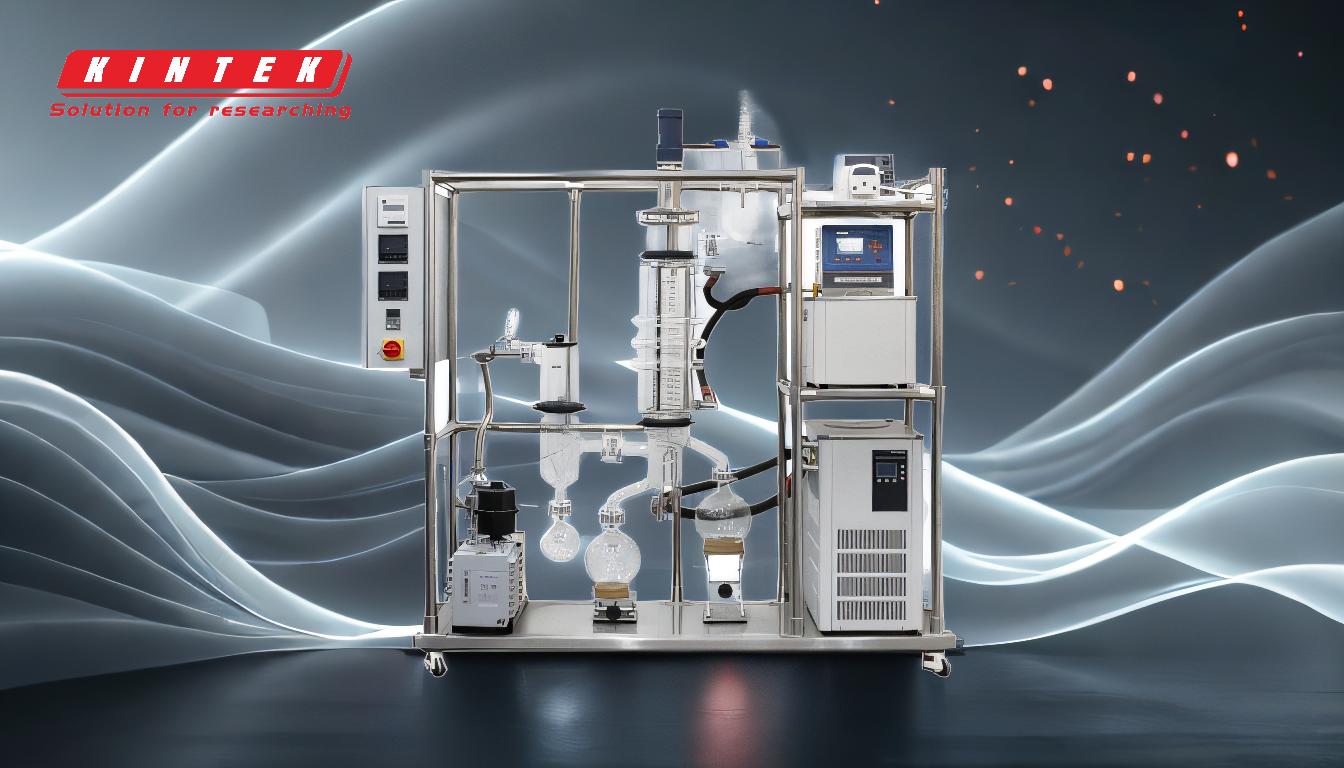Distillation is a separation technique that leverages differences in boiling points to separate components in a liquid mixture. On a molecular level, distillation involves heating the mixture to vaporize the component with the lower boiling point, followed by cooling and condensing the vapor back into a liquid for collection. This process relies on the principles of selective evaporation and condensation, where molecules transition between liquid and gas phases based on their thermal energy and intermolecular forces. The efficiency of distillation depends on factors such as temperature control, pressure, and the physical properties of the components being separated.
Key Points Explained:

-
Formation of a Liquid Film and Evaporation
- When the mixture is heated, a thin liquid film forms on the heating surface.
- Molecules with lower boiling points gain sufficient thermal energy to overcome intermolecular forces and transition into the gas phase.
- This selective evaporation is driven by the differences in the boiling points of the components in the mixture.
-
Movement of Molecules from Heating to Condensing Surface
- Once vaporized, the molecules move from the heating surface to the condensing surface.
- In molecular distillation, this movement occurs directly without reverse flow, ensuring minimal contamination between components.
- The distance between the heating and condensing surfaces is minimized to enhance efficiency.
-
Condensation of Vaporized Molecules
- The vaporized molecules lose thermal energy upon reaching the cooler condensing surface, transitioning back into the liquid phase.
- This step is critical for collecting the separated component in its pure or concentrated form.
-
Collection of Distillates and Residues
- The condensed liquid (distillate) is collected separately from the remaining mixture (residue).
- The residue typically contains components with higher boiling points that did not vaporize during the heating process.
-
Role of Intermolecular Forces and Boiling Points
- The success of distillation depends on the differences in intermolecular forces and boiling points of the components.
- Components with weaker intermolecular forces (e.g., lower boiling points) vaporize more readily than those with stronger forces.
-
Application to Gases and Reverse Distillation
- While distillation is primarily used for liquids, the reverse process can separate gases by liquefying components through changes in pressure and temperature.
- This demonstrates the versatility of distillation in handling both liquid and gas mixtures.
By understanding these molecular-level processes, distillation can be optimized for various applications, such as purifying solvents, concentrating specific components, or separating gases. The technique's effectiveness relies on precise control of temperature, pressure, and the physical properties of the substances involved.
Summary Table:
| Key Aspect | Description |
|---|---|
| Liquid Film Formation | Thin film forms on heating surface, enabling selective evaporation. |
| Molecule Movement | Vaporized molecules move directly to the condensing surface for minimal mixing. |
| Condensation | Vapor loses thermal energy, transitioning back to liquid for collection. |
| Distillate & Residue Collection | Separates condensed liquid (distillate) from higher-boiling residue. |
| Intermolecular Forces | Boiling point differences and intermolecular forces drive separation. |
| Gas Applications | Reverse distillation can separate gases via pressure and temperature changes. |
Optimize your distillation process—contact our experts today for tailored solutions!









